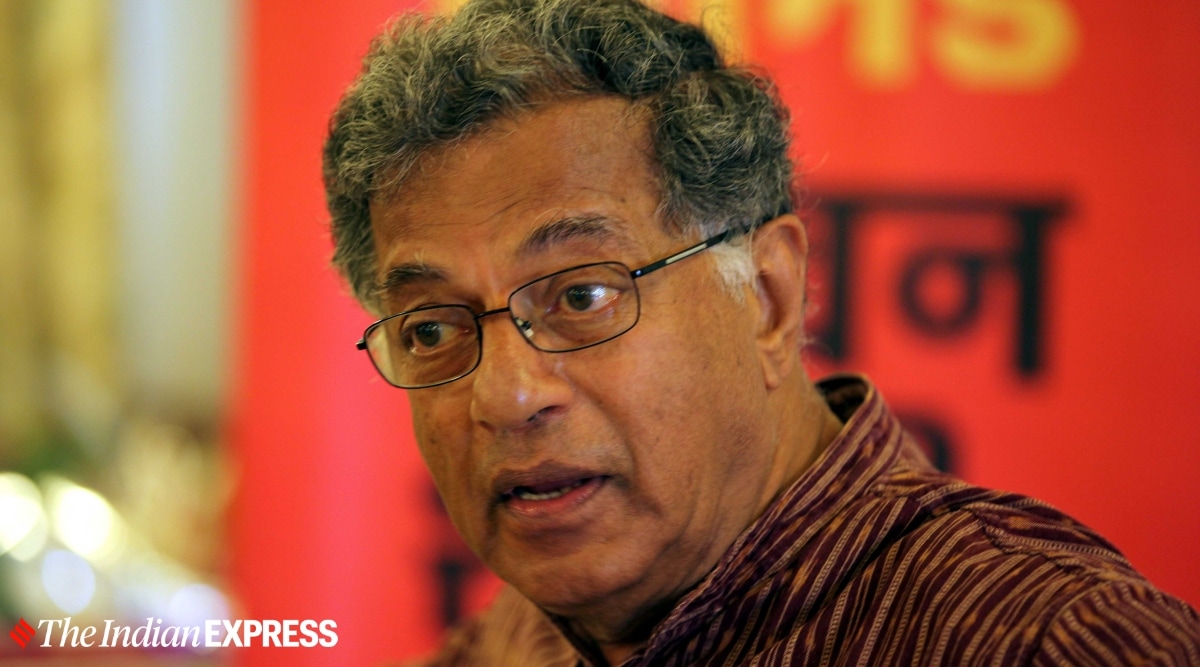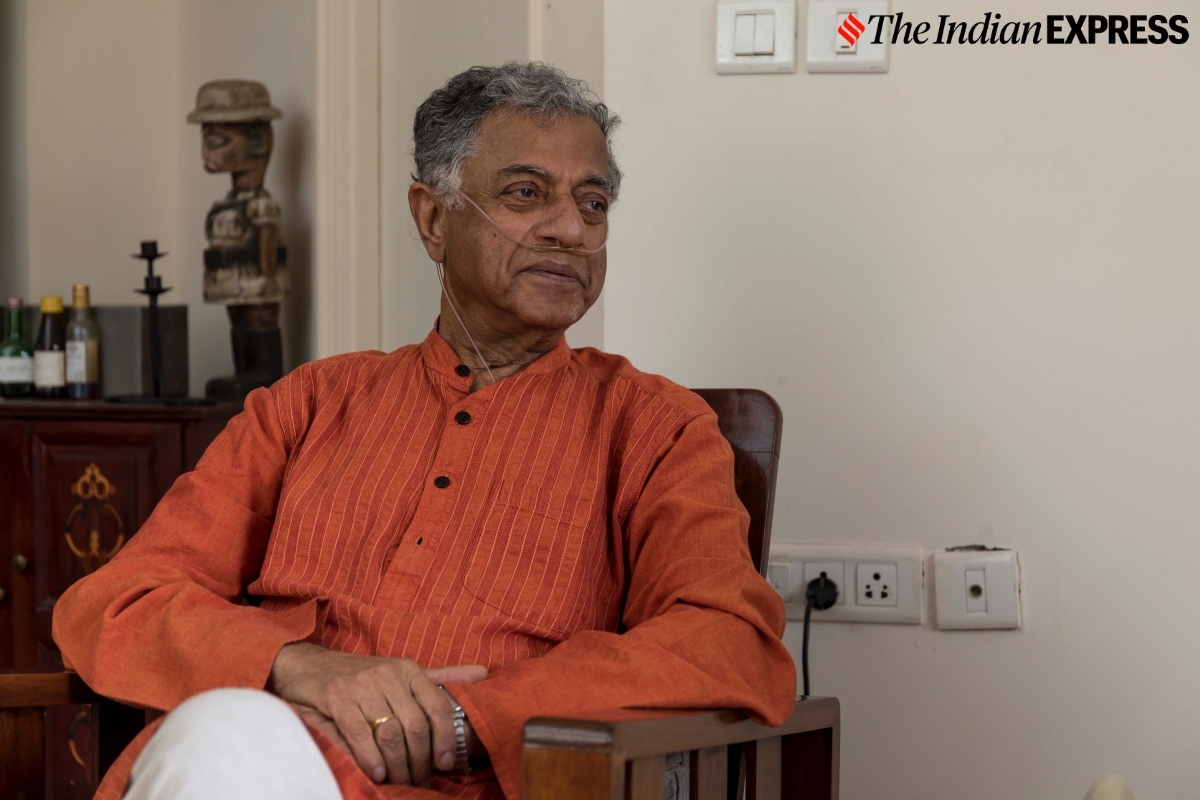 Girish Karnad was more well known in certain circles as a playwright — and rightly so. (Photo: Express Archives)
Girish Karnad was more well known in certain circles as a playwright — and rightly so. (Photo: Express Archives)If you are a young Hindi movie-goer you likely know Girish Karnad as the Indian spy Tiger’s (Salman Khan) boss in Ek Tha Tiger and Tiger Zinda Hai or as the wily cricket coach Guruji who tries to kill the hero’s (Shreyas Talpade) career in Iqbal. The 1980s generation might remember him for his collaborations with the arthouse director Shyam Benegal or as Swami’s stern father in Malgudi Days. Though was a revered actor it turns out acting wasn’t really his true calling. Like Naseeruddin Shah, his friend and co-star from Manthan and Iqbal, Karnad’s first love remained the written word and theatre.
Karnad, whose 84th birth anniversary falls on May 19, was more well known in certain circles as a playwright — and rightly so. Acting surely brought him fame despite the fact that he was not “interested in being an actor,” as he insisted to India Today magazine in 2015. But it was dramaturgy that won the Bengaluru-based Bard laurel. He would go on to use that platform responsibly and for the cause of his own intellectual ideals. The Hindu newspaper described him as a “restless storyteller” and because he was a public intellectual and doyen of the cultural world lording over it for half a century and a man adept at many mediums, be it film direction, acting, theatre or screenwriting, the same newspaper was also felt compelled to call him “our own Forrest Gump.”
 Girish Karnad passed away in 2019. (Photo: Express Archives)
Girish Karnad passed away in 2019. (Photo: Express Archives) A Palimpsest of East and West
Karnad’s iconic plays, such as Yayati, Tughlaq, Hayvadana, The Dreams of Tipu Sultan and Odakalu Bimba, are often credited with having ushered a modern era in Kannada theatre. Yet, most of these works were based on ancient Indian mythology and historical texts which Karnad updated with his versatile eye and literary pursuits. For example, Yayati, his very first offering while he was studying at Oxford, was equal parts Mahabharata and Ibsen. None other than Vijay Tendulkar was impressed by Yayati’s realism and apparently wanted to know why the characters seemed so true to life. Karnad replied, “Oh, I met them all in my childhood in the streets of Sirsi (where he lived before moving to Madras, Bombay and Oxford as an adult).” Hayvadana, too, was a contemporary offspring of two of the most unusual sources, the 11th century Kathasaritsagara and Thomas Mann’s novella The Transposed Heads. The traditional Kannada form of Yakshagana was also an influence on it. In other words, his work was a palimpsest of Eastern and Western traditions.
Best of Express Premium
Regarded as one of his most distinctive and original plays, Nagamandala could be seen as a near-perfect example of the way he combined the different elements of myth, religion, feminism and folklore to produce something that has modern-day relevance. Nagamandala was essentially a strong condemnation of male chauvinism, misogyny and gender discrimination. Perhaps, it’s a play that best expressed his personal ideology and politics. Throughout his work, there was always social commentary and issues of the contemporary world that Karnad felt deeply about. Karnad, who passed away in 2019 at age 81, wasn’t just a writer.
A Jnanpith Award winner, he was also a thinker and philosopher, with a multifaceted life rich in reading and imbibing. For instance, his knowledge of Sanskrit (a language he learnt from his mother) informed his writing. He later taught the intricacies of this classical language to curious students. His love of literature could be traced back to his days as a Rhodes scholar at Oxford. He has written lovingly about his campus experiences in his memoir, This Life at Play. Among the surprising admissions in the book is one about opera. This most ardent of theatre lovers was once bored out of his wits by Mozart’s Magic Flute, falling “asleep in the first act itself.”
In This Life at Play, he shares another interesting insight about having picked up the ropes of playwriting not from any acclaimed play or ancient text but actually from a movie. That was David Lean’s The Bridge on the River Kwai. “As I watched it,” he writes, “I felt as if someone was teaching a class on screenwriting — or in a sense, playwriting.”
The same is true of Karnad’s work. It’s a masterclass on its own.
- The Indian Express website has been rated GREEN for its credibility and trustworthiness by Newsguard, a global service that rates news sources for their journalistic standards.

